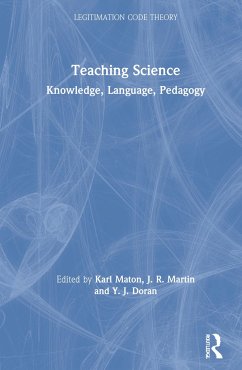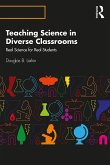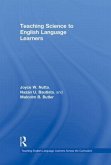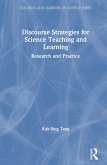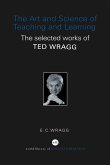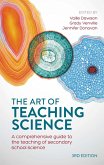Science has never been more important, yet science education faces serious challenges. At present, science education research only sees half the picture, focusing on how students learn and their changing conceptions. Both teaching practice and what is taught, science knowledge itself, are missing. This book offers new, interdisciplinary ways of thinking about science teaching that foreground the forms taken by science knowledge and the language, imagery and gesture through which they are expressed. This book brings together leading international scholars from Systemic Functional Linguistics, a long-established approach to language, and Legitimation Code Theory, a rapidly growing sociological approach to knowledge practices. It explores how to bring knowledge, language and pedagogy back into the picture of science education but also offers radical innovations that will shape future research. Part I sets out new ways of understanding the role of knowledge in integrating mathematics into science, teaching scientific explanations and using multimedia resources such as animations. Part II provides new concepts for showing the role of language in complex scientific explanations, in how scientific taxonomies are built, and in combining with mathematics and images to create science knowledge. Part III draws on the approaches to explore how more students can access scientific knowledge, how to teach professional reasoning, the role of body language in science teaching, and making mathematics understandable to all learners. Teaching Science offers major leaps forward in understanding knowledge, language and pedagogy that will shape the research agenda far beyond science education. ¿
Hinweis: Dieser Artikel kann nur an eine deutsche Lieferadresse ausgeliefert werden.
Hinweis: Dieser Artikel kann nur an eine deutsche Lieferadresse ausgeliefert werden.

